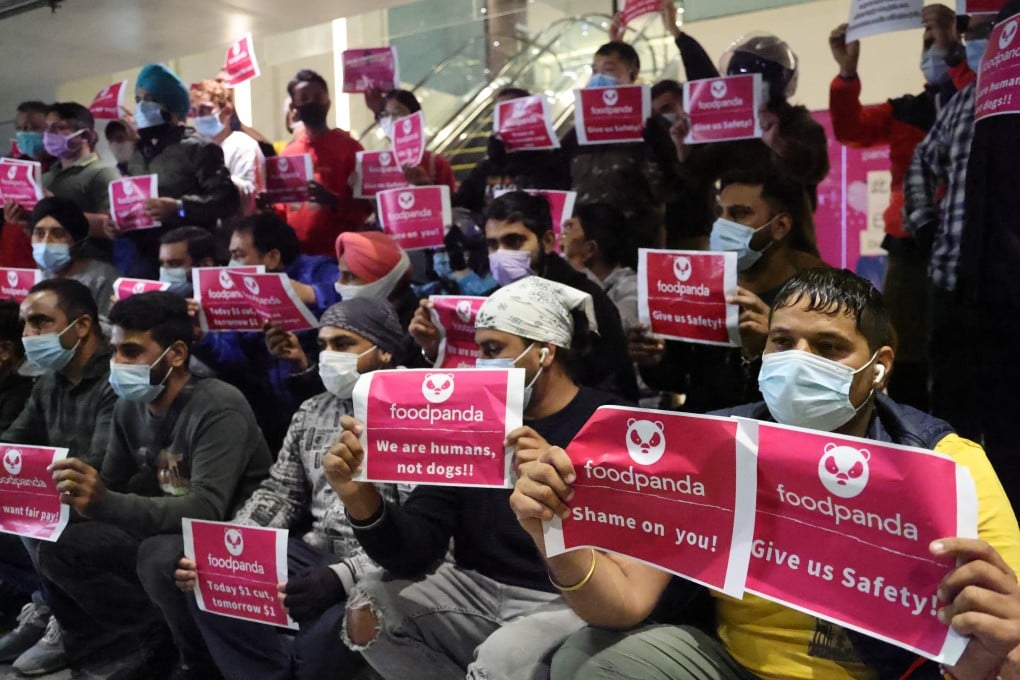Gig economy workers’ lack of rights in Hong Kong highlighted by Foodpanda delivery workers’ strike
- Food delivery workers lift the lid on the problems they face, such as hold-ups at restaurants, a glitchy app, unreasonable targets and cutthroat competition
- Add to that hazardous road conditions and payment per delivery not per hour, and it’s clear that, in the gig economy, employers call the shots

Roland Ilan thought working for a Hong Kong food delivery platform would be a good way to make money until he returned to the fitness industry job he lost in 2020 when the coronavirus pandemic forced gyms in the city to close.
Little did he know how rough a ride it would be. “I quit after two months,” says Ilan, 29, who has since returned to his job at a gym. “When people order their food online they have no idea what goes on behind the scenes.”
At a cafe in Causeway Bay, on Hong Kong Island, Ilan – who was born in the Philippines but grew up in Hong Kong – is joined by 19-year-old Mark Sanchez, a former food delivery worker about to move to Canada, and Hong Kong student Imran (not his real name), 21, a food delivery worker who wants to remain anonymous.
We’re moving at full speed to make the delivery experience for our couriers incrementally better and their earnings more competitive
After two rounds of talks that lasted 14 hours, Foodpanda Hong Kong and couriers on November 18 reached a deal on pay, with the company pledging to improve it and to address issues with its ordering app. Workers had complained that technical issues plagued the app, which is driven by algorithms that pressure couriers to meet unrealistic delivery times.
Details of the terms agreed were not disclosed.
